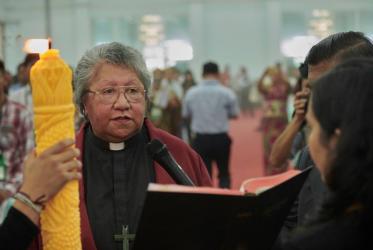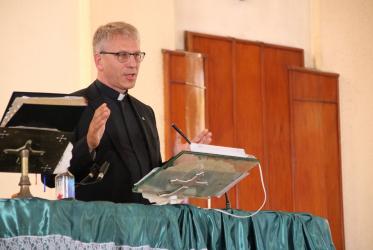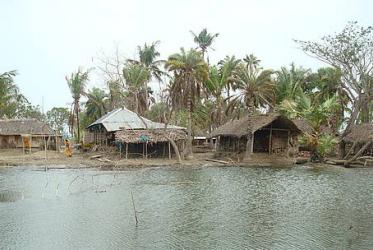Displaying 1 - 17 of 17
The cry of the Papuans in Indonesia
14 November 2019
An advocate for family values, called by God
26 March 2018
Echoes from Yangon
26 October 2017
Conversion by heart
16 October 2017
Tveit: “unity and mission belong together"
15 October 2017
Voices from Asia Mission Conference
13 October 2017
Well attended mission conference opens in Yangon, Myanmar
12 October 2017
In Fiji, “time to go beyond the reef”
14 August 2017
"I hit the ground running": Katalina Tahaafe-Williams
16 February 2016
WCC Executive Committee speaks out on migrant crises
12 June 2015
Indigenous faith leaders reflect on resilience and climate change
23 September 2014
Churches commemorate Week of Prayer for Christian Unity
24 January 2014










